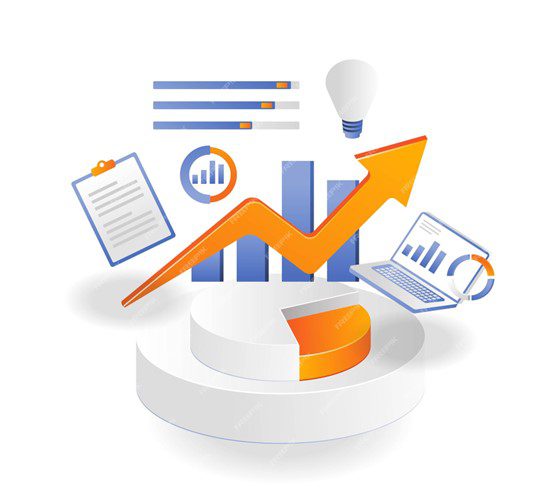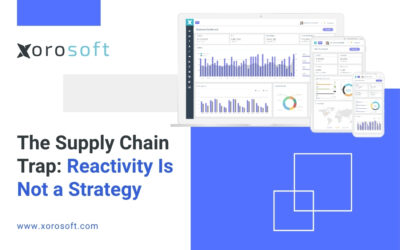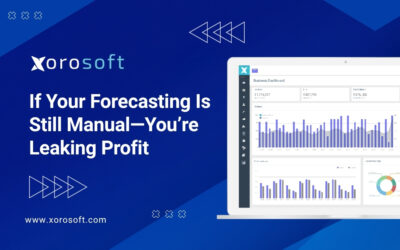
Introduction to ERP-Ecommerce Integration
As businesses continue to embrace digital transformation, the integration of Enterprise Resource Planning (ERP) systems with Ecommerce platforms has become increasingly crucial. This integration allows for streamlined processes, improved data accuracy, and enhanced customer experience. In this article, I will discuss the role of Key Performance Indicators (KPIs) in maximizing efficiency and profitability in ERP-Ecommerce integration.
Understanding Key Performance Indicators (KPIs)
KPIs are quantifiable metrics that organizations use to measure their performance and progress towards achieving specific goals. When it comes to ERP-Ecommerce integration, KPIs play a vital role in providing valuable insights into various aspects of the business. They help monitor and evaluate the effectiveness of the integration process, identify areas for improvement, and drive strategic decision-making.
The Importance of KPIs in ERP-Ecommerce Integration
In the context of ERP-Ecommerce integration, KPIs serve as a compass, guiding businesses towards their desired outcomes. These indicators enable organizations to track and measure important metrics, such as sales revenue, customer satisfaction, order fulfillment speed, and inventory turnover. By monitoring these KPIs, businesses gain a comprehensive understanding of their performance, identify bottlenecks, and take appropriate actions to optimize efficiency and profitability.
Benefits of Using KPIs in ERP-Ecommerce Integration
Implementing KPIs in ERP-Ecommerce integration brings numerous benefits to businesses. Firstly, KPIs provide real-time visibility into key business processes, enabling timely decision-making and proactive problem-solving. With accurate and up-to-date data, organizations can identify trends, spot potential issues, and take corrective actions before they escalate.
Secondly, KPIs help align different departments within an organization, fostering collaboration and synergy. By setting shared KPIs across departments involved in ERP-Ecommerce integration, businesses can break down silos and promote cross-functional cooperation. This alignment ensures that all stakeholders are working towards a common goal, maximizing efficiency and productivity.
Lastly, KPIs provide a basis for performance evaluation and goal setting. By setting measurable targets based on key metrics, organizations can motivate employees, drive continuous improvement, and celebrate achievements. Clear goals and performance indicators create a culture of accountability and foster a sense of purpose among the workforce.
Implementing KPIs in Xorosoft ERP Solution
Xorosoft ERP Solution offers a comprehensive suite of tools and functionalities that enable businesses to seamlessly integrate their ERP systems with Ecommerce platforms. Xorosoft provides a user-friendly interface for defining and monitoring KPIs, making it easier for businesses to leverage these indicators to drive efficiency and profitability.
Within the Xorosoft ERP Solution, businesses can customize their KPIs according to their specific needs and objectives. Whether it’s tracking sales performance, monitoring inventory levels, or analyzing customer behavior, Xorosoft offers a wide range of KPIs that can be tailored to align with the organization’s strategic goals.
Key KPIs for Inventory Management in ERP-Ecommerce Integration
Inventory management is a critical aspect of ERP-Ecommerce integration. Efficient management of inventory levels ensures that businesses can meet customer demands while minimizing carrying costs. Some key KPIs for inventory management include:
- Inventory Turnover Ratio: This KPI measures how quickly inventory is sold and replenished. It helps businesses optimize stock levels, reduce holding costs, and prevent stockouts or overstock situations.
- Stock Accuracy: This KPI measures the accuracy of inventory records in the ERP system. It ensures that businesses have a precise view of available stock, preventing order fulfillment issues and improving customer satisfaction.
- Order Fill Rate: This KPI measures the percentage of customer orders that can be fulfilled immediately from available stock. It indicates how well businesses can meet customer demands promptly and avoid backorders.
Key KPIs for Accounting in ERP-Ecommerce Integration
Effective accounting practices are essential for maintaining financial health and ensuring compliance in ERP-Ecommerce integration. Some key KPIs for accounting include:
- Gross Profit Margin: This KPI measures the profitability of each sale after deducting the cost of goods sold. It helps businesses evaluate pricing strategies, identify product profitability, and make informed decisions regarding product offerings.
- Accounts Receivable Turnover: This KPI measures how effectively businesses collect payments from customers. It provides insights into cash flow management, credit control, and customer payment behaviors.
- Days Sales Outstanding (DSO): This KPI measures the average number of days it takes for businesses to collect payment after a sale is made. It helps identify potential issues with credit terms, billing processes, or customer payment delays.
Maximizing Efficiency and Profitability with KPIs in ERP-Ecommerce Integration
By leveraging KPIs in ERP-Ecommerce integration, businesses can maximize efficiency and profitability in several ways. Firstly, KPIs enable businesses to identify and address bottlenecks or inefficiencies in the integration process. By monitoring key metrics, organizations can uncover areas that require improvement, such as order processing speed, inventory accuracy, or customer service response time.
Secondly, KPIs facilitate data-driven decision-making. By analyzing the insights provided by KPIs, businesses can make informed decisions regarding pricing, inventory management, marketing strategies, and customer experience enhancements. These decisions are based on real-time data, ensuring that businesses are agile and responsive in a fast-paced Ecommerce environment.
Lastly, KPIs help businesses measure the return on investment (ROI) of their ERP-Ecommerce integration efforts. By tracking KPIs related to sales revenue, order fulfillment costs, customer lifetime value, and customer satisfaction, organizations can gauge the effectiveness of their integration strategy and make adjustments as needed.
Xorosoft ERP: A Comprehensive Solution for ERP-Ecommerce Integration
Xorosoft ERP Solution offers a comprehensive suite of features and capabilities that enable businesses to achieve seamless ERP-Ecommerce integration. With Xorosoft, organizations can leverage a wide range of KPIs, customize them to align with their strategic goals, and monitor their performance in real-time.
Xorosoft’s user-friendly interface and intuitive dashboard allow businesses to gain actionable insights from their KPIs effortlessly. By visualizing data trends, identifying patterns, and setting performance targets, Xorosoft empowers businesses to make data-driven decisions that drive efficiency and profitability in ERP-Ecommerce integration.
Conclusion: Leveraging KPIs for Success in ERP-Ecommerce Integration
In today’s digital landscape, ERP-Ecommerce integration is no longer a luxury, but a necessity for businesses seeking to maximize efficiency and profitability. By implementing and monitoring key performance indicators, organizations can gain valuable insights into their operations, optimize processes, and make data-driven decisions.
Xorosoft ERP Solution provides businesses with a comprehensive platform to leverage KPIs effectively in ERP-Ecommerce integration. By embracing this solution and utilizing the power of KPIs, businesses can unlock their full potential, enhance customer experience, and achieve sustainable growth.
Book a Demo with Xorosoft today and experience the transformative power of KPIs in ERP-Ecommerce integration.









